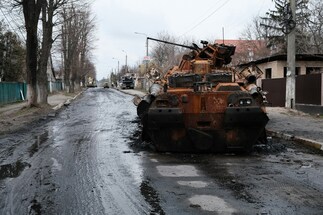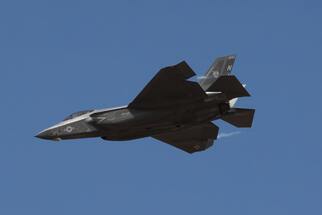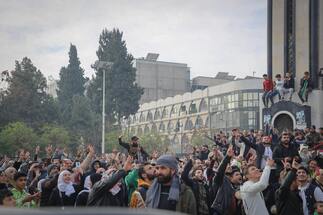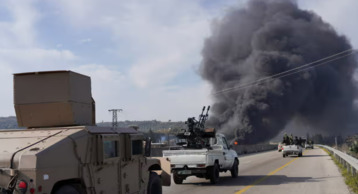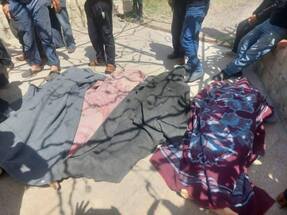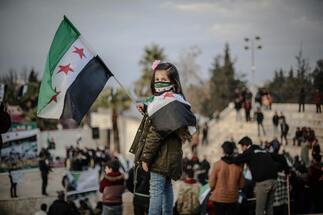-
Europe Sets Conditions for Syria: Extremist Group Control as Prerequisite for Support
-
European stance towards the new Syrian government carries clear signals: no easing of sanctions or direct financial support without tangible steps to curb extremist groups and implement political refo
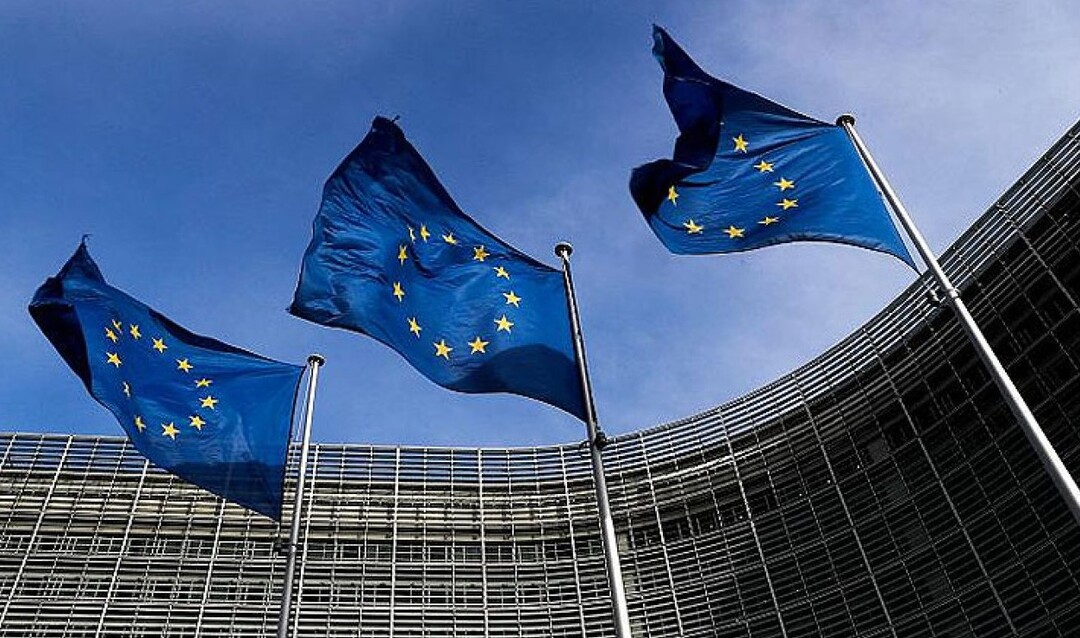
European messages directed at the new Syrian administration are no longer diplomatic or vague but are now direct and explicit, particularly regarding the need for firm action against extremist groups.
According to informed sources, a meeting between European envoys and Syrian Foreign Minister, Asaad al-Shibani, focused on imposing strict surveillance over armed factions. The meeting included warnings that international support for Syria would be conditional on taking practical measures to secure the situation.
French Foreign Ministry spokesperson Christophe Lomouan stated, "The violations recently committed in Syria cannot be overlooked," stressing the necessity of identifying those responsible and holding them accountable. He added, "The West is closely monitoring Syria's leaders to ensure they are on the path to reform," highlighting that halting extremist group abuses is a shared condition among European countries and the United States.
Can Damascus Control Armed Groups?
The question arises about the ability of the new Syrian administration to handle armed groups that not only pose internal threats but also influence the international community's stance on Syria's future.
Syrian journalist Mohammad Abdullah, speaking to "Sky News Arabia," stated, "The biggest challenge for the new administration is curbing the influence of extremist factions, which threaten not only general stability but also the very existence of the new government."
He added, "Dealing with these groups requires more than just political decisions, as it relates to their extremist ideologies, as well as the presence of foreign fighters within their ranks, making containment even more complex."
He further pointed out that "the previous experience in coastal Syria provided a real test of the government's ability to investigate violations and hold perpetrators accountable, which will be decisive in determining how compliant it is with international demands."
Europe: Sanctions vs. Aid – The Calculations Continue
Journalist Maya Khadra notes that "lifting European sanctions on Syria remains tied to a set of conditions outlined at the Brussels donor summit."
She pointed out that "recent tensions in coastal Syria have hardened Europe's position, with Brussels becoming more resolute in its demands."
However, Khadra clarifies that "humanitarian aid has not stopped, as the European Union approved a financial aid package worth 5.8 billion euros for Syria, reflecting continued European interest in the Syrian issue, but without offering concessions."
She also reveals that "some economic restrictions have been eased, including lifting the ban on five Syrian banks and loosening restrictions on vital sectors like energy and transportation, leading to partial improvements in electricity services."
Yet, she stresses that "Europeans remain hesitant to fully trust the new Syrian administration, given the ongoing uncertainty about its commitment to political reforms and human rights."
Foreign Fighters and Syria's Political Future
The issue of foreign fighters remains a primary concern for Western capitals, with some reports confirming that these fighters are still part of Syria's military landscape.
Mohammad Abdullah states, "There are international precedents, like in Bosnia, where some foreign fighters were integrated or granted citizenship as a long-term solution. However, in Syria, this approach seems more complicated due to the ideological nature of these groups."
For her part, Maya Khadra suggests that "the new administration needs to take tangible steps if it wants to gain the international community's trust, whether concerning controlling foreign fighters or implementing political and economic reforms that would make Syria a more acceptable partner regionally and internationally."
What Lies Ahead for Syria?
Amid European pressures and internal complexities, the new Syrian government faces difficult tests, with a clear equation: no international support without tangible steps on controlling armed factions and enhancing stability.
Still, the question remains open: Can Damascus meet these conditions without facing further internal confrontations? The answer will unfold in the coming months, as all eyes are on the path the Syrian administration will take in this crucial phase.
You May Also Like
Popular Posts
Caricature
BENEFIT AGM approves 10%...
- March 27, 2025
BENEFIT, the Kingdom’s innovator and leading company in Fintech and electronic financial transactions service, held its Annual General Meeting (AGM) at the company’s headquarters in the Seef District.
During the meeting, shareholders approved all items listed on the agenda, including the ratification of the minutes of the previous AGM held on 26 March 2024. The session reviewed and approved the Board’s Annual Report on the company’s activities and financial performance for the fiscal year ended 31 December 2024, and the shareholders expressed their satisfaction with the company’s operational and financial results during the reporting period.
The meeting also reviewed the Independent External Auditor’s Report on the company’s consolidated financial statements for the year ended 31 December 2024. Subsequently, the shareholders approved the audited financial statements for the fiscal year. Based on the Board’s recommendation, the shareholders approved the distribution of a cash dividend equivalent to 10% of the paid-up share capital.
Furthermore, the shareholders endorsed the allocation of a total amount of BD 172,500 as remuneration to the members of the Board for the year ended 31 December 2024, subject to prior clearance by related authorities.
The extension of the current composition of the Board was approved, which includes ten members and one CBB observer, for a further six-month term, expiring in September 2025, pending no objection from the CBB.
The meeting reviewed and approved the Corporate Governance Report for 2024, which affirmed the company’s full compliance with the corporate governance directives issued by the CBB and other applicable regulatory frameworks. The AGM absolved the Board Members of liability for any of their actions during the year ending on 31st December 2024, in accordance with the Commercial Companies Law.
In alignment with regulatory requirements, the session approved the reappointment of Ernst & Young (EY) as the company’s External Auditors for the fiscal year 2025, covering both the parent company and its subsidiaries—Sinnad and Bahrain FinTech Bay. The Board was authorised to determine the external auditors’ professional fees, subject to approval from the CBB, and the meeting concluded with a discussion of any additional issues as per Article (207) of the Commercial Companies Law.
Speaking on the company’s performance, Mr. Mohamed Al Bastaki, Chairman BENEFIT , stated: “In terms of the financial results for 2024, I am pleased to say that the year gone by has also been proved to be a success in delivering tangible results. Growth rate for 2024 was 19 per cent. Revenue for the year was BD 17 M (US$ 45.3 Million) and net profit was 2 Million ($ 5.3 Million).
Mr. Al Bastaki also announced that the Board had formally adopted a new three-year strategic roadmap to commence in 2025. The strategy encompasses a phased international expansion, optimisation of internal operations, enhanced revenue diversification, long-term sustainability initiatives, and the advancement of innovation and digital transformation initiatives across all service lines.
“I extend my sincere appreciation to the CBB for its continued support of BENEFIT and its pivotal role in fostering a stable and progressive regulatory environment for the Kingdom’s banking and financial sector—an environment that has significantly reinforced Bahrain’s standing as a leading financial hub in the region,” said Mr. Al Bastaki. “I would also like to thank our partner banks and valued customers for their trust, and our shareholders for their ongoing encouragement. The achievements of 2024 set a strong precedent, and I am confident they will serve as a foundation for yet another successful and impactful year ahead.”
Chief Executive of BENEFIT; Mr. Abdulwahed AlJanahi commented, “The year 2024 represented another pivotal chapter in BENEFIT ’s evolution. We achieved substantial progress in advancing our digital strategy across multiple sectors, while reinforcing our long-term commitment to the development of Bahrain’s financial services and payments landscape. Throughout the year, we remained firmly aligned with our objective of delivering measurable value to our shareholders, strategic partners, and customers. At the same time, we continued to play an active role in enabling Bahrain’s digital economy by introducing innovative solutions and service enhancements that directly address market needs and future opportunities.”
Mr. AlJanahi affirmed that BENEFIT has successfully developed a robust and well-integrated payment network that connects individuals and businesses across Bahrain, accelerating the adoption of emerging technologies in the banking and financial services sector and reinforcing Bahrain’s position as a growing fintech hub, and added, “Our achievements of the past year reflect a long-term vision to establish a resilient electronic payment infrastructure that supports the Kingdom’s digital economy. Key developments in 2024 included the implementation of central authentication for open banking via BENEFIT Pay”
Mr. AlJanahi concluded by thanking the Board for its strategic direction, the company’s staff for their continued dedication, and the Central Bank of Bahrain, member banks, and shareholders for their valuable partnership and confidence in the company’s long-term vision.
opinion
Report
ads
Newsletter
Subscribe to our mailing list to get the new updates!

